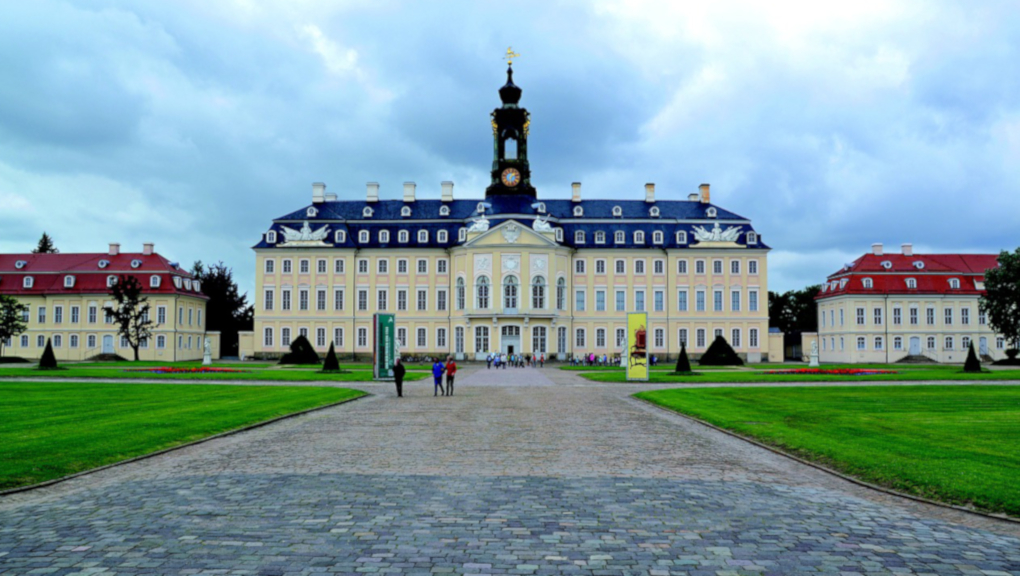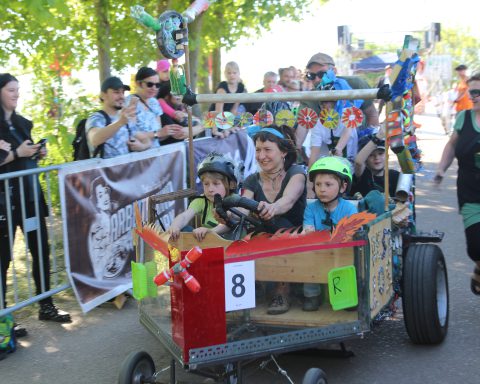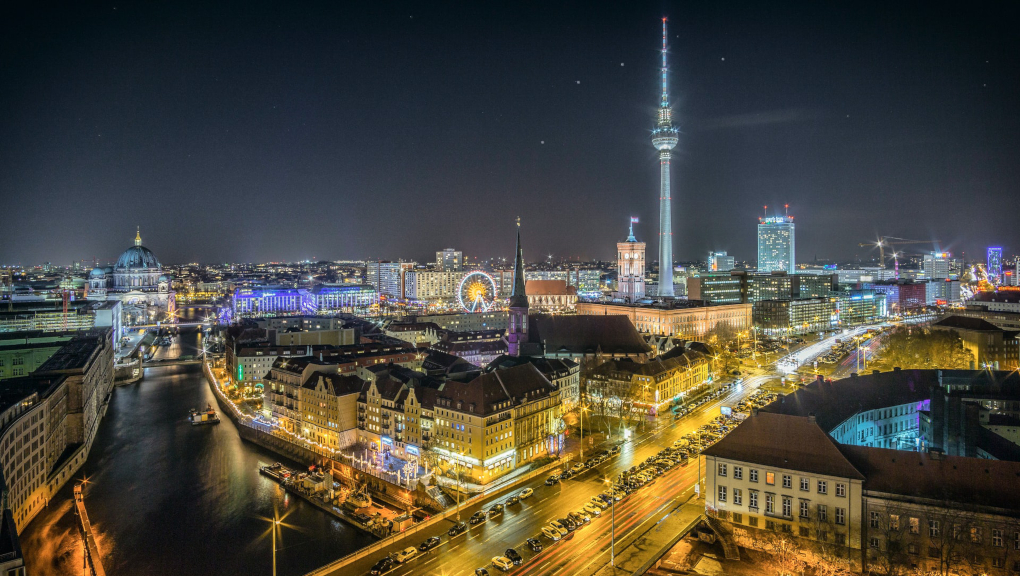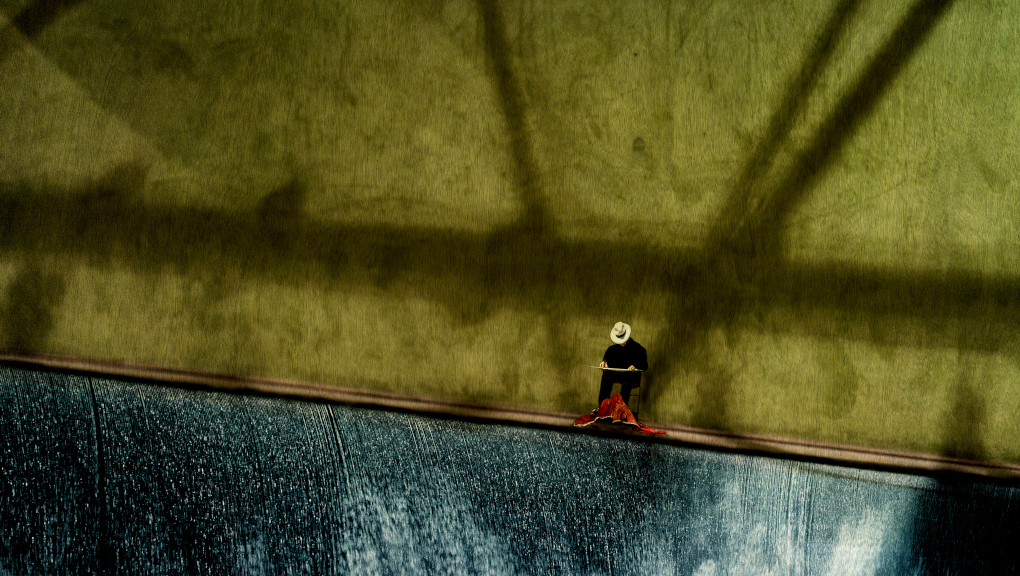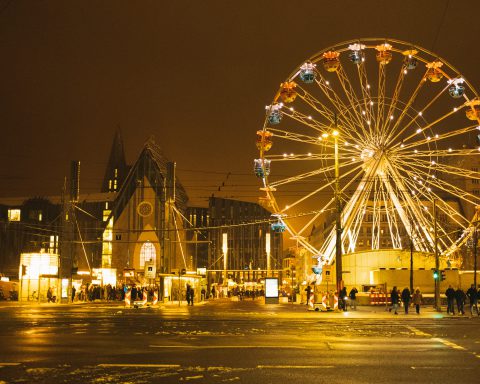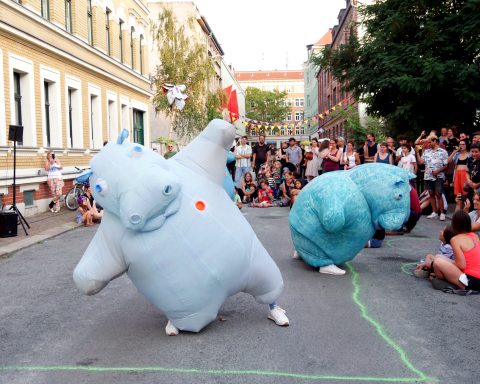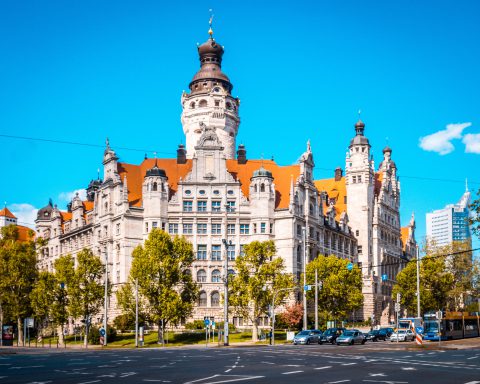Saxony is full of majestic palaces and castles, some of them famous, others not so much. Schloss Hubertusburg in Wermsdorf belongs to the second category. However, it is an impressive building with a large garden and a beautiful baroque facade. In its long history, however, the hunting palace of King Augustus the Strong has never had much luck.
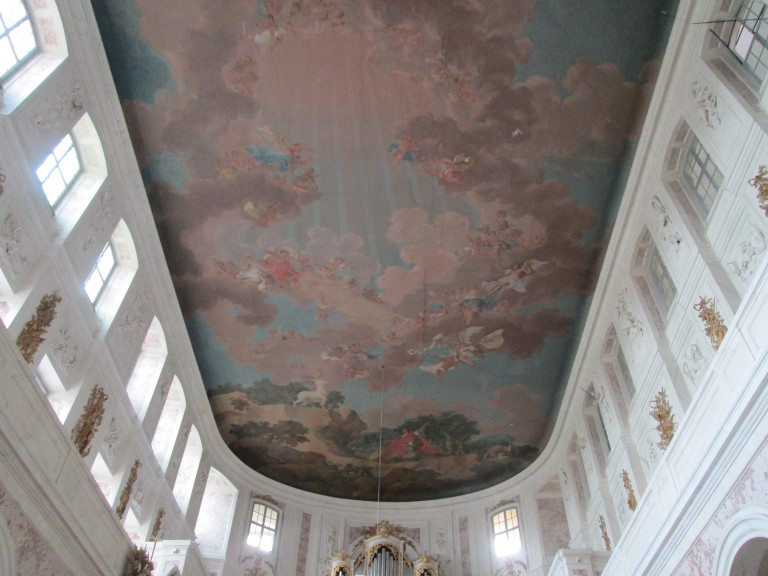
It was already plundered and destroyed by the Prussians during the Seven Years’ War, only a few decades after its construction. Nevertheless, the signing of the treaty which put an end to the war in 1763 also took place at the palace. In the years that followed, it served as a ceramics and clocks factory and was used for a lot of other things. But today, it is mostly remembered as a psychiatric clinic. The town of Wermsdorf still has a mental health clinic near the palace.
For the past thirty years, Schloss Hubertusburg has been completely empty.

Only recently has it started to slowly open to the public. There is not much to see inside, apart from the pretty Catholic church. This is the church which King Augustus had built when he became King of Poland. Augustus, who was actually originally a Protestant, had to convert to Catholicism when he was crowned.
Currently, it features an exhibition bearing the strange title, “Spaceship Hubertusburg”. This fascinating exhibition runs until the end of October. It is open to the public on Thursdays through Sundays, from 10 am to 5 pm. The exhibition will take you back through the history of the palace, while simultaneously catapulting you into the future. This all thanks to the spacecraft designs of one Karl Hans Janke. He was a patient of the psychiatric clinic who lived there for almost 40 years! In his attic he designed spaceships and other aircraft with exquisitely drawn details. These all form part of the exhibition you can see today, along with his hand-written notes.
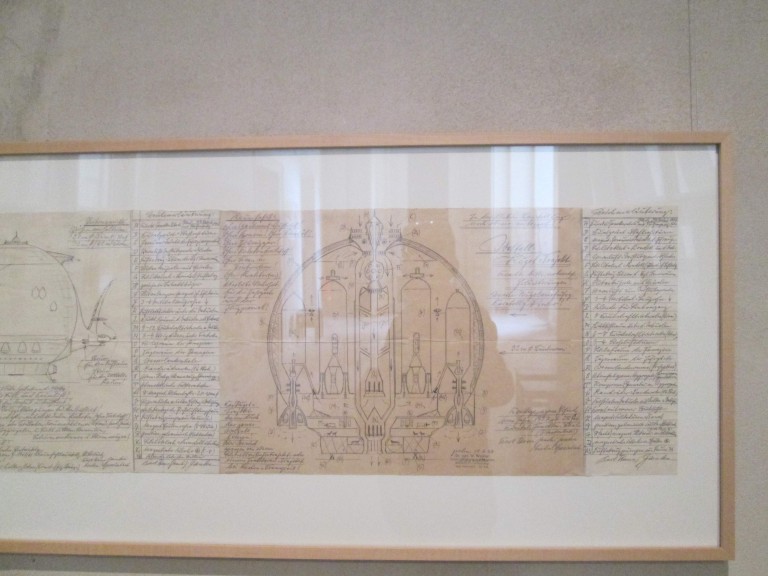
Strangely enough, one day after my visit to the exhibition I happened to watch a haute couture show on the Internet. A famous fashion house presented its new collection on a baroque set. It was obvious that the inspiration for the clothes had come from extravagant baroque hairstyles and other fashion accessories. What struck me as even more of a coincidence was that, at the end, the designer appeared in a space suit!

The public’s fascination with the universe and galaxies far far away has been around for a long while.
Long before Stanley Kubrick’s Space Odyssey or the film series, Star Wars, was made. We know for sure that it was alive and well when Jules Verne wrote his prophetic books in the 19th Century. In fact, even many centuries before, when Ptolemy conducted his studies, and when Dante wrote his Divine Comedy. This same fascination for outer space continues to linger in our collective minds today. Juxtaposed, however, with an existential dread about the ramifications of our awareness thereof. Especially these days, as we set about attacking asteroids before they attack us…

